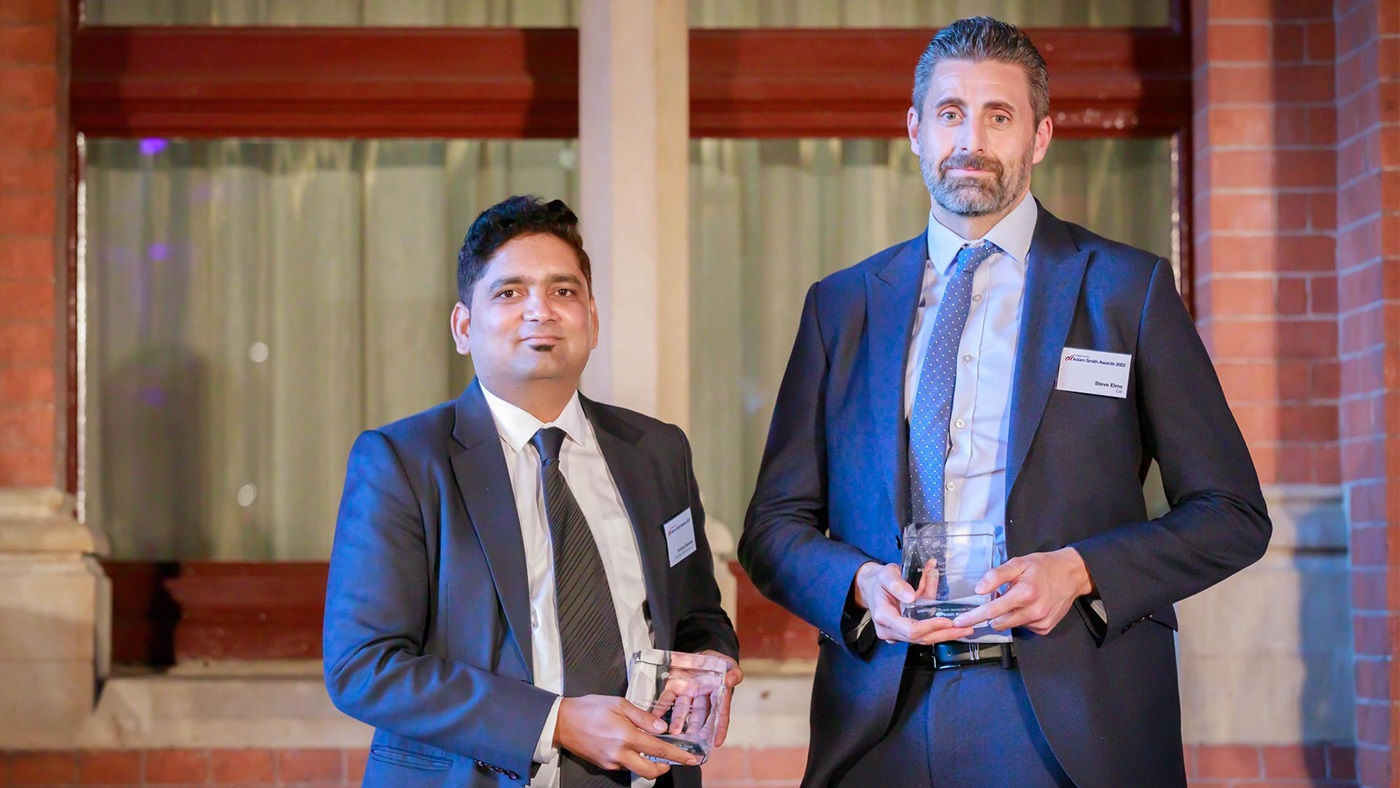
Photo of Krishna Swaroop, Greenlight Planet Kenya Ltd and Steve Elms, Citi.
Krishna Swaroop
Group CFO
Founded in 2007 as Greenlight Planet in USA and recently rebranded as Sun King, Greenlight Planet is an early pioneer in the off-grid solar industry, with the primary aim of replacing kerosene lanterns.
in partnership with

Innovative funding provides finance in Kenya which supports UN’s Sustainable Development Goal #7
Watch video interview
The challenge
Operations in Kenya started in 2014 and over the past eight years the company continues to secure a strong pay-as-you-go market share, estimated by the company at ~60% (by volume), an active customer base of approximately 1.3 million (>10 million cumulative), has 116 walk-in stores, 8,800 active agents and employs 840 permanent staff. The company has sold over 17 million products thus replacing kerosene lanterns and other non-renewable lighting products with affordable solar products thereby impacting more than 65 million lives.
The industry, however, remains nascent and dynamic, populated by small and start-up companies with evolving business models. Many of these companies face similar challenges in developing scale and raising debt financing at sustainable terms. Like other off grid solar (OGS) players, one of the main challenges Sun King Kenya faced is raising debt locally in local currency and at an affordable rate and on sustainable terms. The debt for Sun King was raised at the US parent level from nine different development financial institutions (DFIs) and impact investors and largely in foreign currency. This is because many investors do not understand the OGS business and are hesitant to invest locally.
The solution
Aware of the above financing needs, Citi coordinated US$75m debt financing to Sun King Kenya to aid the expansion of access to OGS communities throughout Kenya. The other club lenders included British International Investment (BII, previously known as CDC Group), Norfund and Standard Bank Group, noting that Citi’s contribution was US$10m (in KES equivalent). The US$75m club facility was in local currency thus eliminating currency volatility costs and reducing the transaction complexity associated with raising debt internationally in foreign currency. The club facility was both timely and aligned to Sun King Kenya’s funding objectives: to import solar equipment and cover operational expenses and to maintain liquidity by securing a back-stop facility.
The club facility also supports the company’s goal of positively impacting the lives of about two billion people across the world (who live off the reliable electric grid) by seeking to provide sustainable clean energy solutions.
Best practice and innovation
Many innovative ideas are developed by small, start-up businesses without access to the capital they need to expand their network and impact. Loans and working capital financing in local currencies and at affordable rates can enable players, such as Sun King, to seek to achieve scale, greater efficiencies and lower costs. This is an example of how multi-sector partnerships and collaboration with trusted local intermediaries can serve to assist in reaching communities (through clean and affordable energy solutions) and drive inclusive economic growth.
Key benefits
- Cost savings.
- Risk mitigated.
- Improved visibility.
- Number of banking partners/bank accounts reduced.
This was a landmark transaction that brought together two international banks (Citi and Stanbic) and two DFIs (Norfund and BII) to help one of the largest players in the sector with the aim of aiding them to expand their access to OFS communities throughout Kenya and support its goal to access an additional ten million households in the next few years.
This financing structure supports the UN’s Sustainable Development Goal #7, to ensure access to affordable, reliable, sustainable and modern energy for all. Moreover, by financing environmentally friendly solutions for lower income households in an emerging market, the transaction addresses ESG issues such as sustainability, poverty alleviation and social concerns.
“This facility frees up group capital from Kenya and allows for the expansion of the pay-as-you-go business into other markets in Africa such as Uganda, Tanzania, Nigeria and more,” explains Krishna Swaroop, Group CFO.